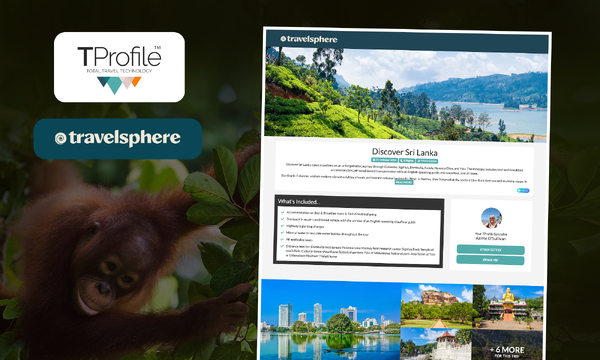The AI tool that can increase travel agents' efficiency and productivity
Microsoft Copilot uses artificial intelligence to automate the mundane, time-consuming aspects of admin-heavy jobs, freeing up more time for creative thinking, writes Janet Butler, senior consultant, The Working Solution, for the latest in our series with Travel Technology Initiative

Ever since Microsoft bought into OpenAI’s ChatGPT, it has been busy developing ways in which AI will be useful to everyone in the workplace. The newly emerging product is called “Copilot”, and it promises to offer companies and individuals the freedom from what Microsoft calls “digital debt” – the excessive inflow of data, emails, meetings and notifications.
In its recent Work Trend Index annual report, Microsoft identified that nearly two in three people (64%) say they struggle with having the time and energy to do their job in the allotted hours, and because of this they are three-and-a-half times more likely to feel unable to think creatively and innovate new ideas.
Microsoft’s thinking is that by automating some of the more mundane and frustrating parts of jobs; for example, inefficient meetings, responding to emails and searching for information, time can be released for the more interesting aspects.
However, to harness the full potential of using AI products such as Copilot, it will involve, for many, a switch of mindset away from the trepidation of experimentation with AI to one of embracing new ways of working that are now only possible because of AI.
NEXT-LEVEL TECH
Copilot is newly available in the US and UK, with a slower roll-out elsewhere. Ahead of its release in November last year, we were promised that Copilot is ChatGPT on steroids (Forbes, 12 July 2023) and it has taken ChatGPT to a whole new level. Soon it will be infused into every Microsoft product, primarily focusing on its Office 365 applications, but it will also be seen in Bing and other platforms like Azure.
There are a variety of tasks that Copilot will be able to help with: it will be able to create proposals from the notes taken in OneNote, add artwork, turn this into a PowerPoint presentation, generate graphs, add new slides and create speaker notes. In Excel, it will be useful to identify trends, generate graphs and charts and, if asked, can suggest better formulae to use.
The technology can also be asked to recap a Teams meeting, identify the main thrust of the meeting and be able to summarise it. It can make sense of multiple meeting feeds and chats, and will be able to get you up to speed fast. It is just like having a real human assistant!
As Copilot uses large language models (LLMs) to bring in data, it will look outside of the company. It will conduct a sweep of information from Outlook messages, databases, Word documents, Excel spreadsheets, SharePoint files and any other internal (and external) source that it is allowed to access. However, some of this amassed information will not be correct.
Therefore, while Copilot is clever, it is not in control, as much of the sourced data will not always be accurate or complete. It still requires careful and strategic analysis by a human to systematically go through the information provided to polish the results.
For travel agents, Copilot will be an invaluable aid in giving the agent the ability to keep tabs on detailed quotes and itineraries. It will search for related email content and present a synopsis of the information found. As it brings generative AI to all the Microsoft apps, it will optimise all digital workflows.
The early signs are that this technology will save employees huge amounts of time, increase company revenues, and grow profits, giving staff the time back they need to be creative and innovative. They’ll be more agile, efficient and productive.
The travel industry is often thought of as a low-margin industry, so let’s look forward to AI increasing our efficiency and productivity, which will, of course, increase profitability.
Travel Technology Initiative (TTI) is a not-for-profit organisation providing members with the latest thinking on technology as well as developing industry-wide standards for travel. For more information, please visit tti.org
TTI's Spring Conference takes place on Wednesday 20 March live in London and will be streamed via Zoom. To find out more about the programme: Seamless Travel – Does AI have a role to play and to register, click here.
In our TTI Travel Tech Talk series so far, we have looked at travel's next disruptive technology – the metaverse; whether Artificial Intelligence will replace the human travel agent; how to stop cyber-criminals infiltrating IT systems; and the secret weapon for reducing lost counter time in agencies.















